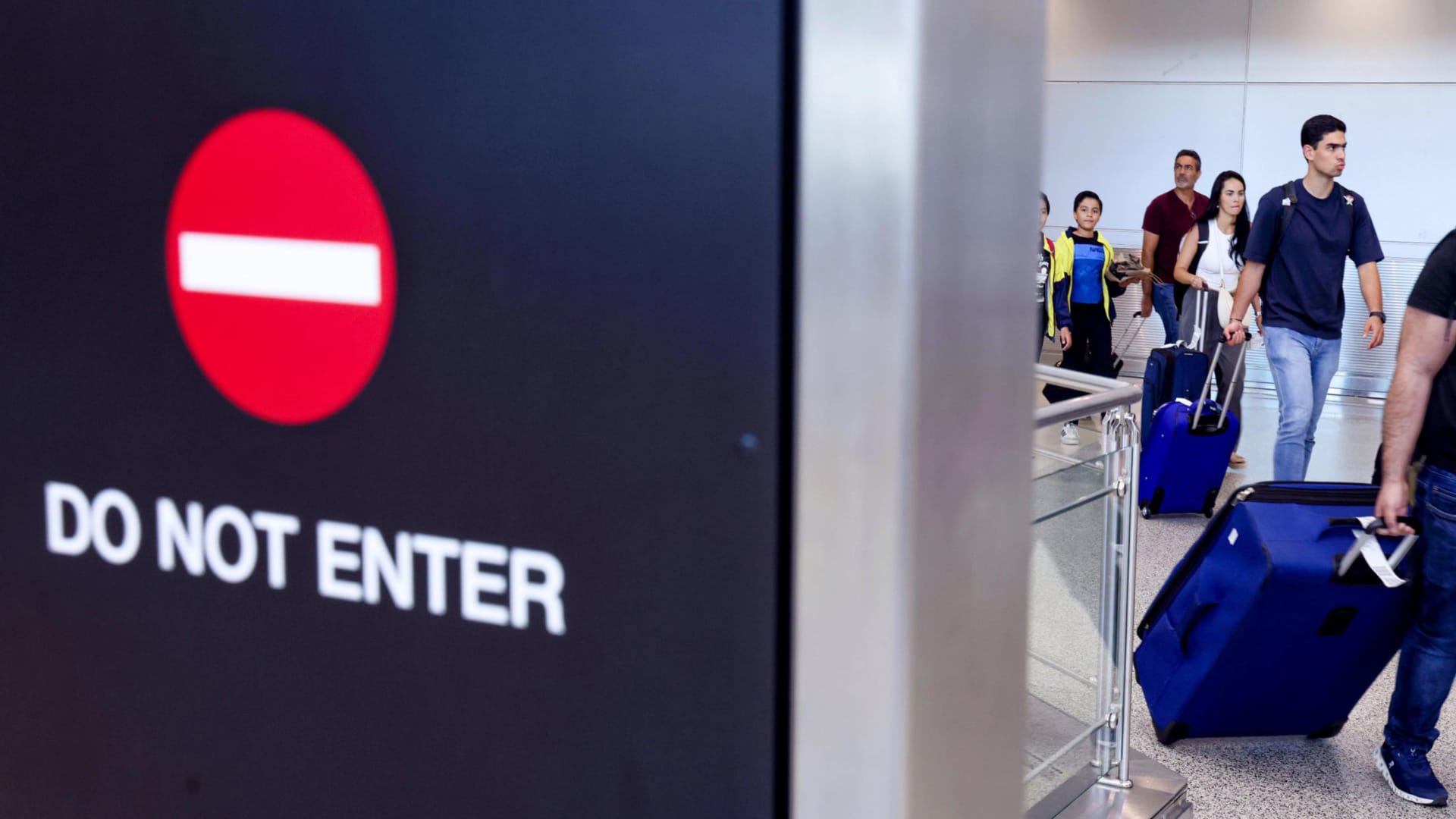On Monday, June 9, 2025, travelers from Latin America and the Caribbean arrived at Miami International Airport as President Donald Trump’s new travel ban came into effect. According to an internal State Department communication reviewed by Reuters, the Trump administration is contemplating a significant expansion of its travel restrictions, which could prohibit individuals from an additional 36 countries from entering the U.S.
Earlier this month, President Trump enacted a proclamation banning travelers from 12 nations, citing the need to shield the U.S. from ‘foreign terrorists’ and other threats to national security. This directive is part of a broader immigration enforcement strategy initiated at the beginning of his second term, which has also included the deportation of hundreds of Venezuelans to El Salvador, who are suspected gang members, and efforts to restrict the enrollment of some international students in U.S. universities.
The internal diplomatic cable, signed by Secretary of State Marco Rubio, expressed a dozen concerns regarding the countries in question and suggested potential corrective measures. ‘The Department has identified 36 countries of concern that might be recommended for full or partial suspension of entry if they do not meet established benchmarks and requirements within 60 days,’ the communication revealed. This information was first reported by the Washington Post.
Among the issues raised by the State Department were the inability or unwillingness of certain governments to provide reliable identity documents and concerns regarding the security of their passports. Additionally, some nations were cited for failing to cooperate with the U.S. in facilitating the deportation of their nationals who have been ordered to leave the country. There were also concerns that citizens from these countries engaged in terrorist activities within the U.S., along with exhibiting antisemitic and anti-American behavior.
The cable clarified that not all the listed concerns applied to every country mentioned. ‘We are constantly reevaluating policies to ensure the safety of Americans and that foreign nationals follow our laws,’ a senior State Department official stated, choosing not to discuss specific internal discussions.
The official emphasized, ‘The Department of State is committed to protecting our nation and its citizens by upholding the highest standards of national security and public safety through our visa process.’
The countries that could soon face full or partial entry bans if they fail to address the concerns within the next 60 days include Angola, Antigua and Barbuda, Benin, Bhutan, Burkina Faso, Cabo Verde, Cambodia, Cameroon, Cote D’Ivoire, Democratic Republic of Congo, Djibouti, Dominica, Ethiopia, Egypt, Gabon, The Gambia, Ghana, Kyrgyzstan, Liberia, Malawi, Mauritania, Niger, Nigeria, Saint Kitts and Nevis, Saint Lucia, Sao Tome and Principe, Senegal, South Sudan, Syria, Tanzania, Tonga, Tuvalu, Uganda, Vanuatu, Zambia, and Zimbabwe.
This proposed expansion marks a significant increase from the initial ban enacted earlier this month, which affected travelers from Afghanistan, Myanmar, Chad, Congo Republic, Equatorial Guinea, Eritrea, Haiti, Iran, Libya, Somalia, Sudan, and Yemen. Additionally, there are partial restrictions on entries from seven other countries: Burundi, Cuba, Laos, Sierra Leone, Togo, Turkmenistan, and Venezuela.
During Trump’s first term, he established a controversial travel ban on individuals from seven predominantly Muslim countries, a policy that underwent several revisions before being upheld by the Supreme Court in 2018.

